-
Elevating Dental Care: Introducing Fluoride Varnish to Our Standard of Care for Adult Patients
Introduction: At Your Smile Bel Air Family Dentistry, we are committed to providing our adult patients with outstanding dental care that goes beyond expectations. We are excited to announce the formal inclusion of fluoride varnish* as a core component of our standard of care. In this blog post, we will introduce fluoride varnish, highlight its advantages over other fluoride treatments, and emphasize its low risk of ingestion and convenience for our valued adult patients.
Understanding Fluoride Varnish: Fluoride varnish is a highly effective preventive treatment that offers targeted protection against tooth decay and enamel erosion. It is a concentrated gel-like substance that contains a higher concentration of fluoride compared to other fluoride treatments. Here’s why we have chosen to incorporate fluoride varnish into our standard of care for adults:
1. Enhanced Protection: The application of fluoride varnish forms a durable coating on the teeth, acting as a physical barrier against acid attacks and enamel demineralization. This protective layer significantly reduces the risk of tooth decay and helps maintain strong, healthy teeth.
2. Low Risk of Ingestion: We understand the concerns surrounding fluoride ingestion, especially for adult patients. With fluoride varnish, the risk of ingestion is minimal due to its fast-drying nature. The varnish adheres to the teeth quickly, minimizing the chances of swallowing any significant amount.
3. Convenience for Adult Patients: Fluoride varnish offers unparalleled convenience, making it an ideal choice for our adult patients. The application process is simple and non-invasive, taking only a few minutes during your regular dental visit. Unlike other treatments, there’s no need to wait for any specific amount of time before eating or drinking. You can resume your daily activities immediately after the application.The Benefits of Fluoride Varnish for Adults: By including fluoride varnish with our routine dental cleanings, we are prioritizing the oral health and well-being of our adult patients. Here are the key benefits you can expect:
1. Reduced Risk of Tooth Decay: Fluoride varnish provides a concentrated and long-lasting fluoride release that effectively strengthens tooth enamel and helps prevent cavities.
2. Protection against Enamel Erosion: The protective barrier created by fluoride varnish shields the teeth from acid attacks, reducing the risk of enamel erosion and maintaining a healthy smile.
3. Alleviation of Tooth Sensitivity: Fluoride varnish can help alleviate tooth sensitivity by sealing exposed dentin and reducing discomfort.
4. Tailored Treatment for High-Risk Individuals: For adults with a higher risk of tooth decay or specific oral health conditions, fluoride varnish can be applied directly to targeted areas that require additional protection, such as areas showing early signs of decay or exposed root surfaces.Conclusion: With the addition of fluoride varnish to our standard of care, we are excited to offer our adult patients an enhanced level of protection against tooth decay and enamel erosion. Fluoride varnish is a safe, convenient, and highly effective preventive treatment that minimizes the risk of ingestion while delivering targeted benefits. Experience the difference of our comprehensive dental care by scheduling your next appointment today.
*While adult fluoride varnish has been established as a standard of care at our dental office, it is important to note that coverage for this treatment may vary among dental insurance plans. We recommend patients to contact their dental insurance provider for detailed information regarding coverage, benefits, and any associated costs. Please be aware that any fees related to fluoride varnish treatment are the responsibility of the patient. Our team is available to assist you in addressing any queries or concerns you may have regarding insurance coverage.
-
Let’s Take Prevention to the Next Level
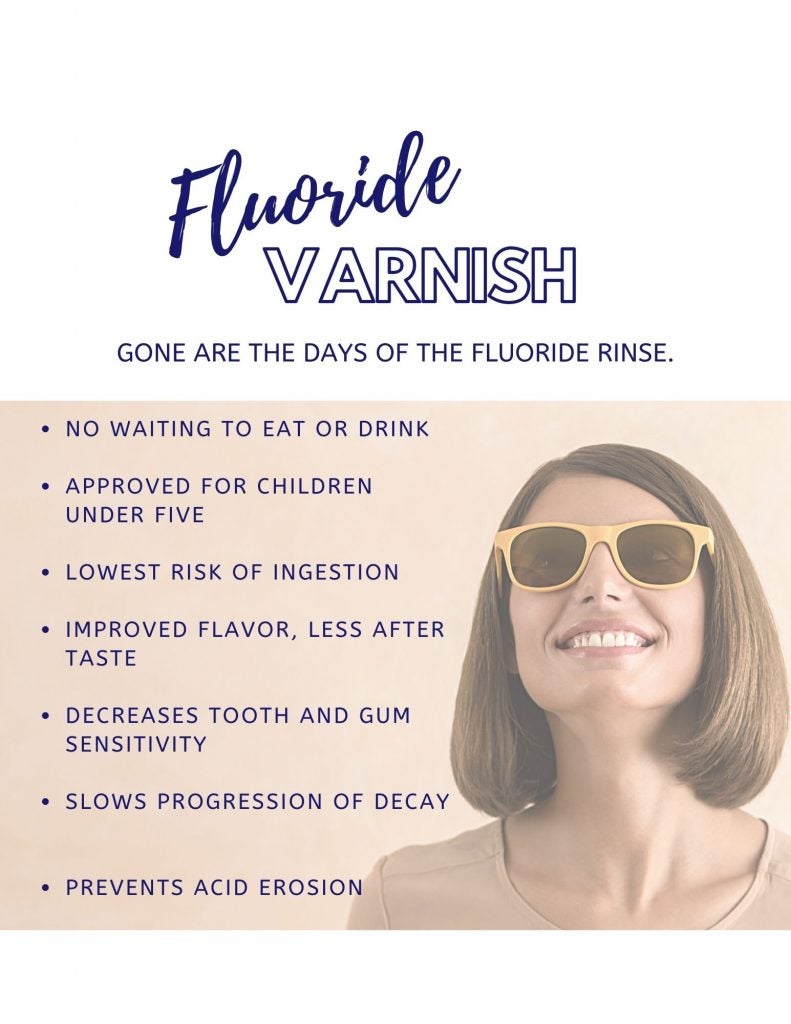
-
Could Sugarless Drinks Hurt Your Teeth?
You are probably aware of the problems that sugar can cause for your teeth and gums, but switching to sugarless drinks might not be the final answer for good dental care. Remember that you should be visiting your Dr. Zhu for regular appointments as well as practicing proper dental care at home. Check out this video clip to find out if sugarless drinks could be hurting your teeth.
It is not uncommon to see advertisements for sugarless drinks that claim to be healthier than their competitors. However, switching to these sugarless drinks might not be the best idea for your dental care. Sodas, sports drinks, and other sugarless beverages might still contain acids that can attack your tooth enamel and cause decay; despite the way these drinks are advertised, this is not very friendly towards your teeth. Be sure to read the labels carefully and practice proper dental hygiene daily.
-
Answering Your Questions About Teeth Whitening
Everyone wants a bright and beautiful smile, so it’s no surprise that professional whitening is one of the most commonly performed procedures in cosmetic dentistry. If you’re thinking about seeing a dentist for tooth whitening in Bel Air, MD , then continue reading to learn the answers to common questions about this treatment.
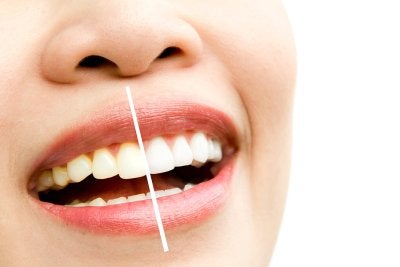
Why is professional whitening better than other options?
The greatest benefit that you’ll gain by seeing a dentist for tooth whitening is speed. Unlike over-the-counter kits, professional whitening uses a stronger formula that can provide you with a noticeably whiter smile in a single treatment. At-home kits that you can pick up at the drugstore often take a week or longer to provide noticeable results.
What happens during teeth whitening?
When you visit your dental office for professional tooth whitening, your dentist will have you wear a tray during the treatment that will cover your teeth with a specially formulated whitening gel. Also, your dentist may use a type of light to enhance the whitening effects of the gel. These appointments typically take about an hour.
How long will my results last?
The answer to this question depends on a number of factors. How well your teeth take to the treatment and how much enamel they have can affect how long your results last. Also, your oral hygiene practices, dietary choices, and lifestyle habits can influence how long your tooth whitening results remain noticeable.
How can I make my results last longer?
Luckily, there are a number of steps that you can take to help retain your tooth whitening results. First, avoid eating or drinking any items that can stain your teeth, such as coffee, tea, soda, berries, and anything tomato-based. If you do choose to eat and drink these items, be sure to rinse your mouth or brush your teeth afterward. Finally, keeping up with twice-daily tooth brushing and biannual dental cleanings can help prevent stains from building up on your teeth.
-
Identifying the Essentials of Good Oral Hygiene
If you’re like most people, then you dislike hearing that you have a dental cavity when you visit your dental office in Bel Air, MD for a check-up. Luckily, preventing the need for tooth fillings and other restorative procedures can be as simple as practicing good oral hygiene.
At home, dental care begins with keeping your teeth clean. To do this, use a toothbrush that has soft or medium-strength bristles, and switch to a new toothbrush once every 3 months. Brush your teeth twice per day for a full 2 minutes using a fluoride-containing toothpaste. Also, floss your teeth at least once per day, ideally before bed, to help dislodge any food that may be stuck between your teeth.
In addition to keeping up with brushing and flossing, scheduling regular dentist visits is also an important part of dental care. See your dentist twice per year for check-ups and cleanings to help keep your teeth free of stains and tartar and to catch small problems before they have a chance to grow into bigger ones.
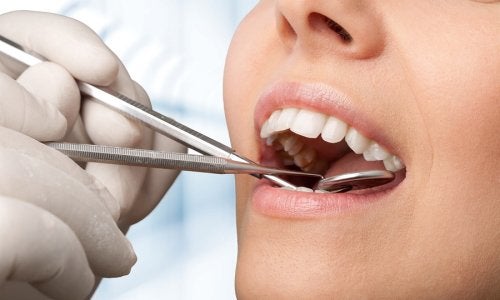
-
What Are the Signs of a Tooth Abscess?
A tooth abscess can be a very painful condition. In this video, a dental care practitioner will explain some of the common signs and symptoms of an abscessed tooth. When you have an abscess, you may find that your tooth is very sensitive to hot or cold foods. You may also feel a dull, aching pain that throbs in your mouth. A dentist at a general dentistry office in Bel Air will be able to check your tooth for the signs of an abscess.
In the event that you experience an abscess in your tooth, you will want to visit your local dental office right away. With dental care services, you will be able to alleviate your pain and restore your tooth to perfect health. Your dentist will have the tools needed to remove the abscess and improve your overall comfort.
-
The Aesthetic Benefits of Dental Implants
If you have a chipped, broken, or missing tooth, you will want to make an appointment at a cosmetic dentistry office right away. An office that specializes in cosmetic dentistry in Bel Air will be able to provide you with beautiful dental implants that will completely transform your smile. Like porcelain veneers and dental bridges, dental implants are used to replace or restore teeth that have become lost or damaged. There are several aesthetic benefits that dental implants have to offer you.
With a new dental implant, you will enjoy a natural looking smile. Rather than having to hide your missing or broken tooth, you will be able to smile with total confidence. Dental implants also have the advantage of being matched to your natural tooth shape and color. After your procedure has been completed, it will be nearly impossible to tell the difference between your implant and your natural teeth.
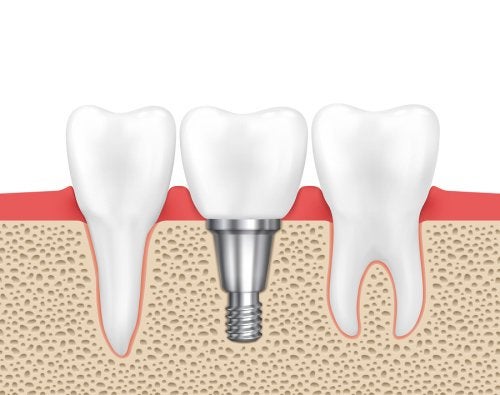
-
Talking to Your Dentist About Gum Disease Treatment
Gum disease, also known as periodontal disease, is one of the most common causes of tooth loss. Proper dental care can often prevent gum disease, but if you already have it, you may need specialized dental care in a dental office in Bel Air, MD. Undergoing an intensive dental cleaning may reverse the disease, provided you follow your dentist’s recommendations for at-home dental care .
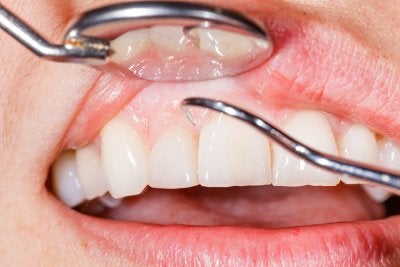
Discuss Your Medical History
When you arrive at the dental office, you can expect to be asked about your medical history. You might consider asking your dentist how he or she thinks you developed gum disease. Some common risk factors of periodontal disease include diabetes, poor nutrition, poor oral care habits, tobacco use, and decreased immune function. Not all of these risk factors can be eliminated, but lifestyle changes can improve others. Consider asking your dentist to evaluate your typical brushing and flossing techniques, and give you some pointers if your routine could use improvement.
Learn About the Recommended Treatment
The treatment options your dentist recommends will depend on how far the disease has progressed. The early stage of gum disease is gingivitis. If you have gingivitis, your dentist might recommend one or two professional dental cleanings. You’ll also need a follow-up visit to make sure your gums are healing. If your dentist recommends this method, be sure to ask how often you should schedule routine dentist visits in the future. If your periodontal disease is more advanced, your dentist may recommend scaling and root planing. This is a deep cleaning method that scrapes away tartar, plaque, and toxins from below and above the gum line. The root surfaces are then smoothed. If your dentist recommends this option, consider asking how else you can support your oral health. Your dentist may prescribe medications, recommend medicated mouthwash, or advise you to switch to an electric toothbrush.
Ask About Maintenance
Whichever treatment option your dentist recommends, be sure to ask him or her about the maintenance phase. Maintaining your oral health is crucial to prevent a recurrence of gum disease. Your dentist may recommend that you return to routine dental cleanings four times per year instead of the usual two visits. During these visits, the dentist will check your gums to make sure they are still healthy.
-
Tips for Caring for Your Sensitive Teeth
If you have sensitive teeth, you may find it uncomfortable to consume very hot or cold beverages and foods. Since tooth sensitivity can indicate the wearing down of your enamel or the recession of your gum line, it’s best to visit a dental office in Bel Air, MD, for a dental cleaning and exam. Proper dental care can resolve your tooth sensitivity by addressing the underlying problem. In the meantime, you can follow the tips explained in this video.
This video offers some at-home dental care guidance for sensitive teeth. It recommends brushing your teeth with a soft-bristled toothbrush and desensitizing toothpaste that contains fluoride. You can protect the enamel on your teeth by avoiding soda and acidic foods, and by waiting 30 minutes after eating before brushing your teeth.
-
Aging and Oral Health
Good dental care is important at every age. As you grow older, your dentist might alert you to some problems that you may be at risk of. Aging can bring about changes in the dentin just underneath the enamel. This can cause your teeth to appear dull or darker. A quick trip to a dental clinic near Bel Air, MD , can easily correct this problem. Consider talking to your dentist about teeth whitening or porcelain veneers.
Watch this brief video for some helpful tips on taking good care of your teeth as you enjoy your golden years. This dentist recommends chewing sugarless gum to stimulate the release of saliva if you experience dry mouth due to certain medications. She also recommends making regular dental check-ups, brushing and flossing thoroughly every day, and limiting snacking between meals.
RECENT POSTS
categories
- Uncategorized
- General Dentistry
- Toothache
- Emergency Dentistry
- Family Dentistry
- Receding Gums
- Cosmetic Dentistry
- Veneers
- Gum Disease
- Gingivitis
- Dental Crowns
- Orthodontics
- Dental Implants
- Root Canal
- Wisdom Teeth
- Teeth Whitening
- Your Smile
- Composite Fillings
- Lumineers
- Dentures
- Invisalign
- BrightSmile
- Dental Bridge
- Abscessed Tooth
- Sealants
